The gardening world is abuzz with talk about heirloom seeds and how they compare to their hybrid seed counterparts. There are a number of great reasons to consider heirlooms for your vegetable garden!
Originally published in April 2018; this post has been updated.
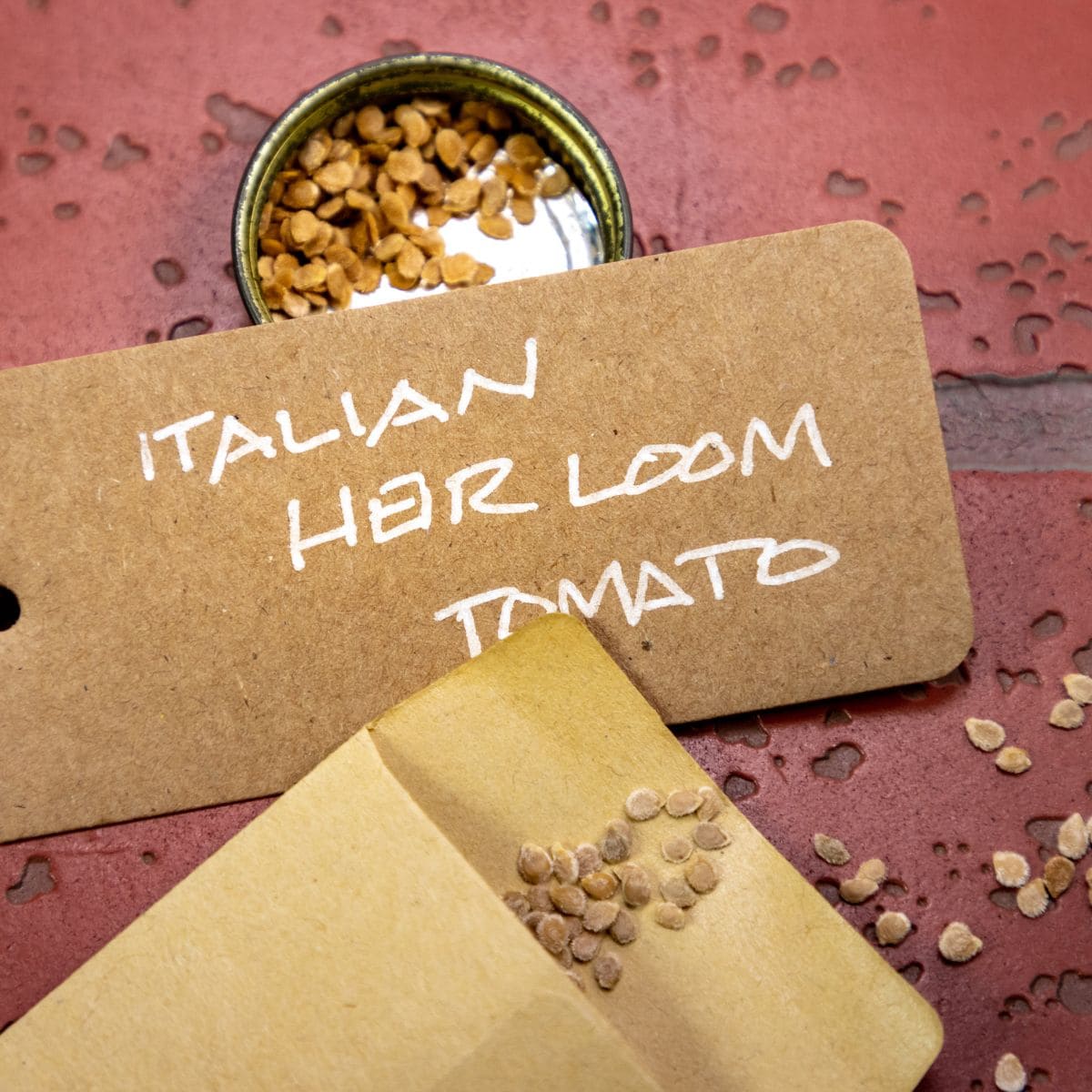
When it comes to planting a flower bed or a vegetable garden, you’ll have to decide which seeds to try in your garden. (Let’s face it — no matter how big your garden is, you’re just not going to be able to try them all!)
You may have seen seeds labeled as heirloom and wondered what made them so different from other seed choices.
What are Heirloom Seeds?
When you visit the nursery or shop for seeds in a catalog, you’ll see two options: heirloom seeds and hybrid seeds.
- Heirloom seeds (sometimes called open pollinated seeds) can be saved and replanted from year to year. The resulting fruit remains “true to seed.” In other words, that funny little tomato you remember from grandma’s garden? If you planted seeds saved from that tomato, you’d get the same fruit today.
- Hybrid seeds are the product of cross-breeding two varieties of one type of fruit or vegetable in order to improve it. Yields, pest and disease resistance, flavor, or shelf life are enhanced in hybrid varieties. Hybrid seeds generally do not grow true to seed.
There are benefits to buying both, certainly, but let’s talk about heirloom seeds.
Grow Some Greens!
Ready to grow fresh greens, no matter WHERE you live? Sign up for my
FREE quick-start guide and start growing some of your own food!
A note about genetically modified organisms: GMO, or transgenic, seeds are altered by inserting DNA from outside of the species into a plant seed. Kind of like trying to breed a cat and a dog. Mother Nature doesn’t allow such a thing to happen, but the miracle of modern technology lets scientists cross that barrier. GMO seeds are patented and it’s actually illegal to save and replant some of these seeds.
But good news for gardeners. These seeds are generally available only to large-scale planters; you won’t find them on the seed rack at your local nursery.
Heirloom seeds tend to produce crops that are outside of our “norm” when we think about vegetables. Tomatoes at the store? You’ll get them in a nice, uniform shape with reddish skin. Heirloom tomatoes? Those can be yellow, green, purple, or striped. The variety is vast and the flavors vary.
One drawback of heirloom tomatoes? They may not be as disease-resistant as some hybrids. The best way to know which ones will do best in your climate is to talk with neighboring gardeners or experiment.
6 Reasons to Give Heirloom Seeds a Try
From the practical to the unexpected, heirloom seeds can make a wonderful addition to your annual vegetable garden.
1. Grow Unusual Varieties
Certain varieties of plants are becoming hard to find! Choosing heirloom seeds may be slightly more expensive, but growing rare crops is fun and can be a boon to market growers.
White eggplant, blue corn, and purple bell peppers are a beautiful addition to a meal, and will certainly catch the eyes of shoppers at the farmers market. Check out these varieties!
2. Tickle Your Taste Buds
Most fans of heirloom seeds will argue that the flavor of heirloom produce is better. Choose from dozens of different flavors and varieties of your favorite produce items such as tomatoes and peppers, and see how expansive the flavors can be.
3. Save Seeds from Extinction
Just like animals can go extinct, plants can too. Buying and planting vintage varieties — and saving seeds — helps keep those heirloom vegetables growing for future generations to enjoy!
4. Victory Gardening
During WWI and WWII, people grew victory gardens to help keep food on the table when times were scarce. If those gardeners had been using hybrid seeds, the resulting crops from year to year would have been an unknown factor.
With heirlooms, gardeners can save non gmo, organic seeds with full confidence that they’ll have a similarly successful crop the following season.
While the initial investment in these seeds may be a bit more than you’d pay for hybrid seeds, remember that you can harvest seeds from your plants and store them until the following year. With seed saving, you can enjoy that heirloom goodness again and again.
5. Seed Sharing
Heirloom seeds are such a rare treat. You can pass the heirloom seeds you harvest down to your children, or share them with others who are looking for particular varieties.
Just think how sweet it would be to have your children or grandchildren grow heirloom tomatoes from the seeds you harvested from your garden!
6. Nostalgia
Do you have fond memories of your grandma’s garden? Chances are she grew flowers or vegetables that aren’t so common these days. If there are certain plants that take you back to your childhood, growing these heirloom varieties can really take you down memory lane.
They might not be common as nursery stock, but tracking down a seed company that specializes in heirloom plants will open up so many possibilities!
Finding Heirloom Seeds
When you are ready to buy your own heirloom seeds, you will find that there are many varieties available at your local gardening center. For an even larger variety, specialty heirloom seed companies are the place to shop. Here’s a list of 20 online retailers to find heirloom seeds.

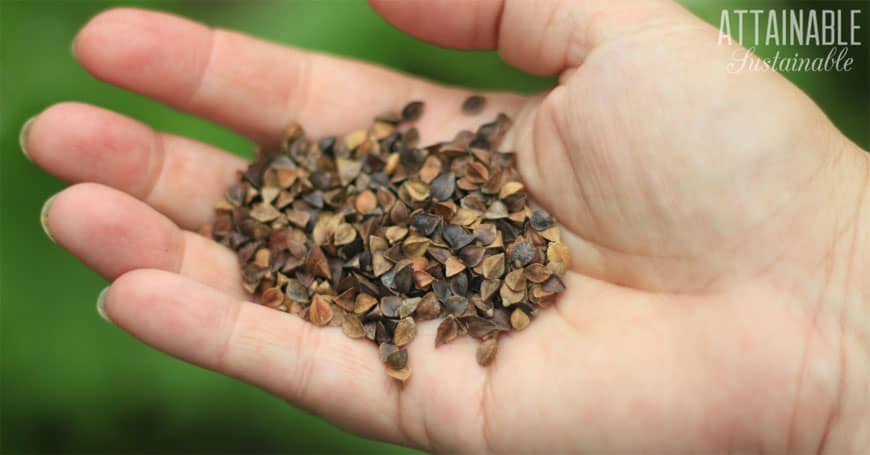
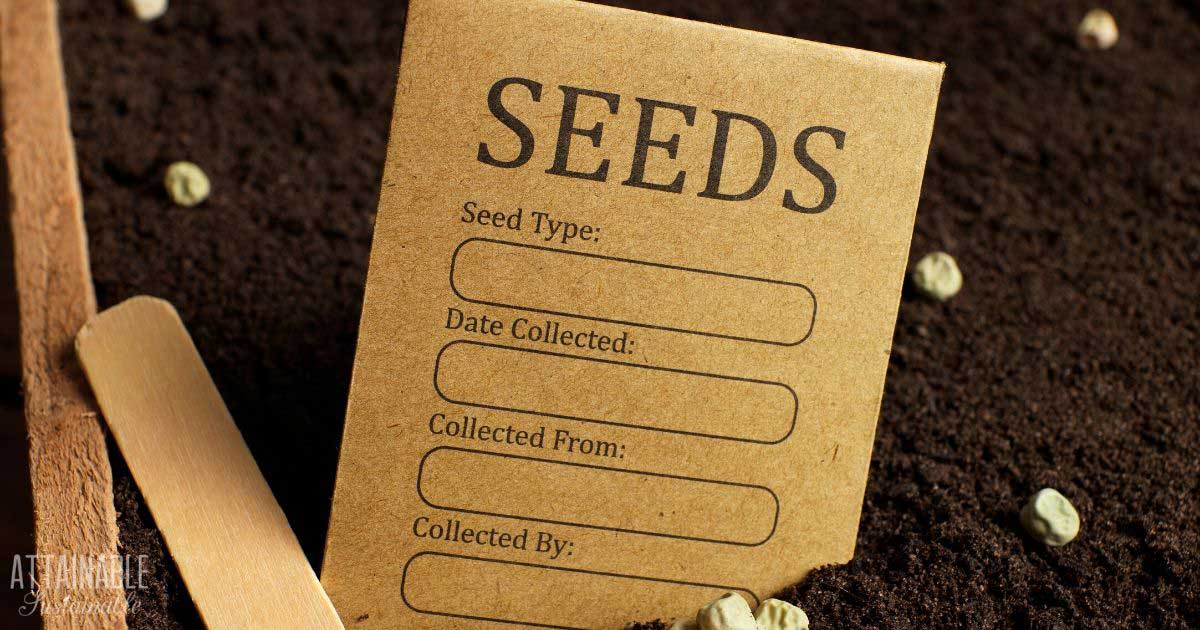
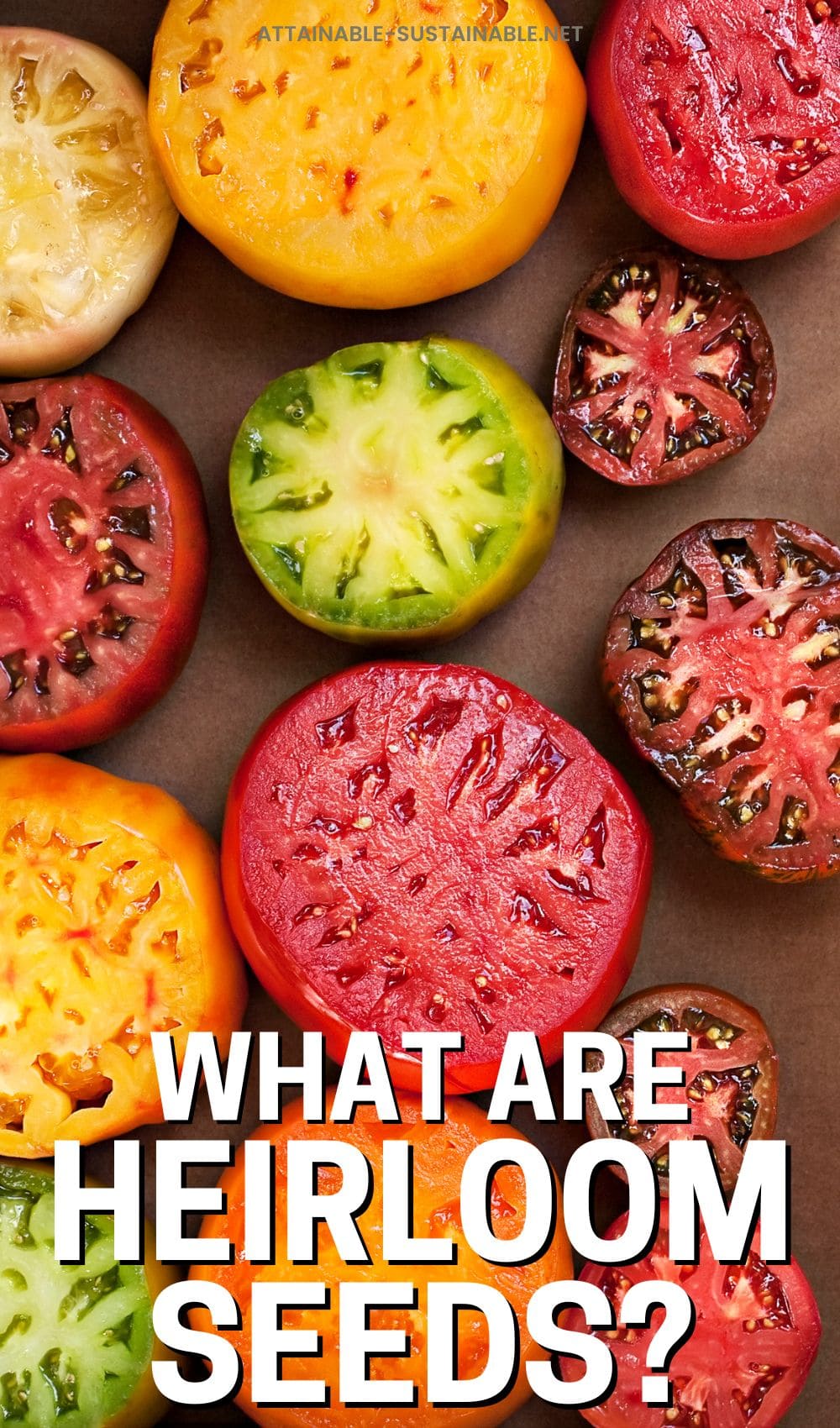

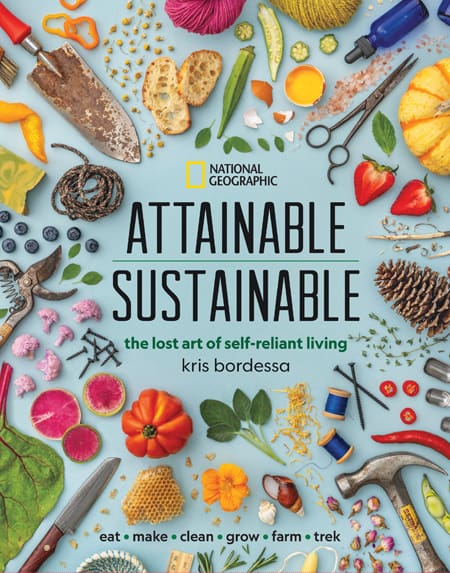
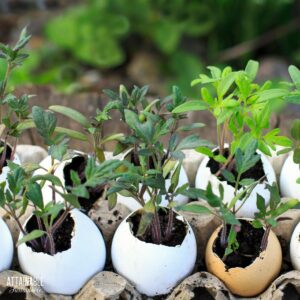
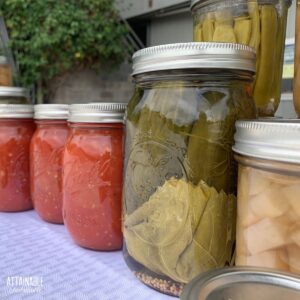

Thank you for all the time you put into this study. Most of this stuff I did not know. It’s is awful how we half to watch what we eat anymore. Some could care less, as for my family we try to eat clean foods. Thanks we all half to look out for each other. And encouraging others to do the same.
You’re welcome 🙂
Great info! I love growing heirloom veggies and herbs and saving the seeds to plant the next year. 🙂